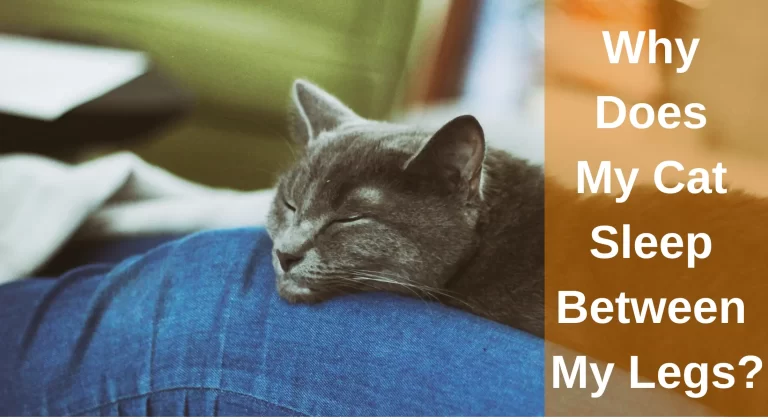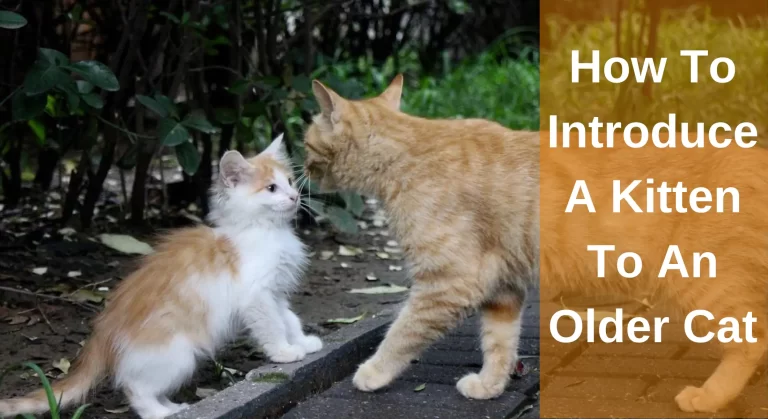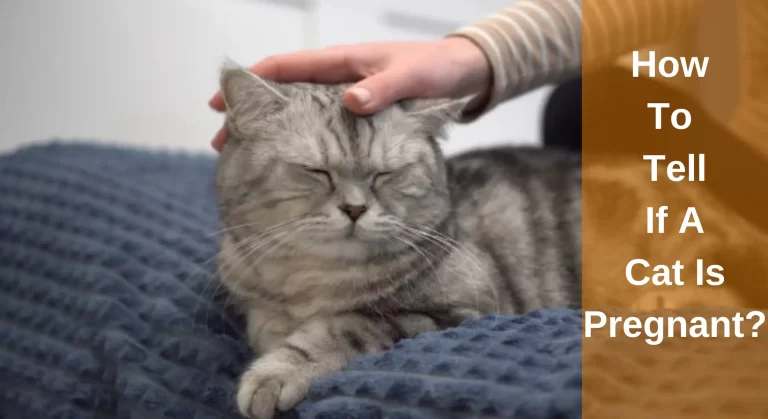Why Is My Cat Peeing Everywhere All of a Sudden? Reasons And Solutions
It is probably no surprise that cats are neat and clean if you own them. Cats keep themselves clean, and they make sure that everything around them is tidy, such as their beds, litter boxes, and so forth.
Have you ever noticed that your cat keeps peeing everywhere around your house? May cat owners face this issue and ask, “Why is my cat peeing everywhere all of a sudden?” It may indicate that something is wrong. When your cat suddenly begins urinating inappropriately, you must rule out any medical or behavioural causes before treating it.
There are several reasons why cats urinate inappropriately. The conflict between cats may lead to inappropriate urination, a dislike for the litter-box type or litter, a medical condition may present or a more complex issue that may lead to inefficient environmental perception.
As part of this article, we will examine some of the most commonly occurring causes of inappropriate urination and some steps to help treat the condition.

Causes of Your Cat Urinating all Over the Place
Inappropriate elimination is the most common behavioural problem reported to veterinarians, accounting for approximately 50% of all behavioural referrals. At least 10% of cats are expected to experience elimination problems at some point in their lifetimes. This is also the main reason cats are abandoned.
Some of the reasons why cats stop using their litter boxes and start peeing all over the house are listed below.
1. Medical issues
Inappropriate urination in cats, also known as feline urinary tract disorders, can have several medical causes, including:
- Urinary tract infection (UTI): A bacterial infection in the urinary tract can cause discomfort and lead to inappropriate urination.
- Feline interstitial cystitis (FIC): FIC is a painful condition that affects the bladder and causes frequent urination, straining, and sometimes blood in the urine.
- Bladder stones: Stones in the bladder can cause irritation, inflammation, and blockages, resulting in inappropriate urination.
- Bladder cancer: Cancerous growths in the bladder can cause frequent urination, straining, and blood in the urine.
- Diabetes: Cats with uncontrolled diabetes may experience excessive thirst and urination, which can lead to inappropriate urination.
- Kidney disease: Cats with kidney disease may drink and urinate more than usual, leading to inappropriate urination.
- Neurological problems: Certain neurological conditions can affect a cat’s ability to control its bladder, leading to inappropriate urination.
- Medication side effects: Some medications can cause increased urination or bladder irritation, leading to inappropriate urination.
If your cat is exhibiting inappropriate urination, it’s important to take them to the vet for a thorough examination to identify and treat any underlying medical conditions.
Find Out: Can Cat Wear Diapers? Cat Diapers 101
2. Problems With the Litter box
If you’ve recently changed anything regarding your cat’s litter box, your cat may suddenly start peeing in the house. Cats may feel unhappy over the following things:
- Size of the litter box: There are so many different types of cat litter boxes available, and they all have quite varied textures, appearances, and aromas. Your cat will urinate over the edge of the litter box if it doesn’t like the litter box.
- Cleanliness of litter box: As we all know, cats like cleanliness. And even if the litter box is perfect in every other aspect, it is doubtful that your cat would use it if it is dirty.
- Type of Litter(New Litter): A new litter may be causing your cat’s elimination problems, so you should consider going back to his old litter if you experience these issues. Cats have extremely sensitive noses, so an unfamiliar litter may cause your cat to have elimination problems.
- Litter box’s location: Even the location of your cat’s litter box may have an impact on how she acts. Have you recently relocated and moved their litter box? Cats frequently prefer litter boxes in quiet, low-traffic areas.
- Shared litter box: While sharing between two or more cats isn’t really a smart idea, one litter box is more than plenty for one cat. Communal litter boxes get filthy a lot faster, which is also a problem.
3. Stressful Situations
The smallest changes to your feline’s routines or environment can cause them to become quite stressed. Then, we can gradually ensure that any alterations are made to prevent our cats from becoming worried. Here are just a few instances that may have happened and alarmed your cat:
Here are just a few instances that may have happened and alarmed your cat:
- Bringing a new pet.
- Birth of a new kid
- Loud sounds are coming from nearby construction.
- Unfamiliar people arrive at the house.
- Driving a car
- Changing their eating habits
- Using new litter or fresh cat litter.
- Rearranging your home’s furniture after a family member or pet passes away.
Despite the fact that many situations seem insignificant to us, they mean so much to our cats. Therefore, it is also very important to remove the stressors and introduce changes at a slow pace so that all of these problems are also addressed and met.
Also, Check Out: Do Cats Pee When Scared Or Stressed?
4. Existence of other Pets
Your other pets have peeing behaviour because one cat bullies another and causes the bullied one to become afraid to enter the litter box.
Additionally, cats will urinate in other places rather than sharing their litter box with other pets in the house because they do not like sharing it with other pets.
It is easy to solve this problem by purchasing a few more litter boxes and placing them in different places around your home so that the cats can use whichever one is closest.
Furthermore, if you have a shy cat, you should give him his own litter box so that he will feel more comfortable peeing in it.
5. Environment Change
Cats can experience stress even when their litter box is moved, especially older cat who has already established their habits.
If your cat suddenly begins to urinate all over the house or rub her face all over things, something has probably happened in their environment to make them feel as though their personal space is being invaded.
For instance, If you bring a new person or pet into your home, they may experience trauma and urinate outside a litter box because of stress.
To give your cat time to adjust to a new environment, you might want to separate the pets by a door for several days when you introduce a new pet
6. Routine Change
It’s no secret that cats are creatures of habit and don’t like changing their usual routines. Any disruption to their daily routine could make them stressed.
Therefore, they tend to urinate outside their litter boxes to surround themselves with the scent of their urine since it reassures them that they are in a safe area.
7. Territorial Behaviour
Cats are territorial creatures and tend to mark everything they touch by leaving their scent. They do this every time they bump their heads or slide their flanks against a person or an object.
The territorial scent is left even after scratching. The problem with urine marking is that it can become a messy, stinky habit that is hard to break and difficult to eliminate.
When a new pet or person enters the home, urine marking in the house often occurs as a way to establish dominance. In unneutered male cats, it may occur during mating season or as a response to stress
8. Cognitive Dysfunction
Cats with poor memory and learning skills commonly urinate outside the litter box. It’s possible that your cat is utilising a different spot because she has forgotten where the litter box is.
For instance, losing the urge to groom oneself, their appetite for meals, or forgetting acquired habits. All of the clinical signs, as well as other behavioural changes, are associated with cognitive impairment.
9. Age
It is common for cats to experience joint stiffness and arthritis as they age. These changes may make it harder for your elderly cat to reach the litter box on time and make it more difficult for them to stand up from a nap or jump from the couch to the floor.
If your cat has a sensory function problem, it may change its behaviour when it comes to its litter box. These symptoms may be more difficult to diagnose, but they may not realize they have to go until they run out of time, or their habits may change.
10. Separation Anxiety
It is one of the major contributors to ongoing stress. This makes your cat extremely afraid of being left behind.
This might be the outcome of earlier experiences, including being abandoned by their mother when they were kittens or having a tense connection with a former owner.
Also Read: How to Get Rid of Cat Pee Smell
How Do I Stop My Cat From Peeing Everywhere?

1. Make Your Surroundings Cat-Friendly
Whatever the cause, creating a calm, secure, and loving atmosphere is the first step toward minimising undesirable habits. According to a clinical study, you may use a Feliway optimum diffuser to soothe your cat and lessen urine spraying within a week.
2. Check the location of the Litter box
If your house has many stories, you should have at least one on each portion. Keep litter boxes out of such areas, like close to washing machines, dryers, noisy pipes, and other objects.
3. Visit the Vet with Your Cat
A trip to the vet is necessary if your cat is urinating all over the place. You may solve the question of why your cat is urinating all over with the assistance of a veterinarian.
A urinary tract infection, bladder infection, renal problems, diabetes, or a few other possible reasons will likely be examined by the veterinarian.
4. Promote a Clean Environment
Regardless of whether your veterinarian believes the issue is behavioural or medical, be sure to carefully clean any locations where your cat has urinated outside of the litter box.
For your personal benefit and to prevent your cat from visiting the same spot again owing to the scent, you should ensure the stench has been completely eradicated.
You can use cotton towels to dab up as much fresh urine as you can. You should properly clean your home every one to two weeks by clearing out all the clutter, cleaning the boxes, and refilling them.
5. Keep Your Kitties apart
If your cats recently got into a fight in or near the litter box, they may opt to avoid using it rather than risk another fight starting if they do.
After any tension has subsided, keep your cats separate and try gently reintroducing them. Place many litter boxes throughout your home to prevent a single cat from blocking access to all of the litter boxes at once.
Check Out: How To Stop A Cat From Peeing On Clothes?
How to Make Cats Less Tense?
Cats may become worried in many settings that people wouldn’t find challenging. For instance, we are excited to go on vacation when we decide to do so. Your cats may even be smart enough to link your luggage to the fact that you left the house since they interpret it as an environmental change.
The simplest way to relieve tension is to load a lot of easily accessible boxes with clean trash and deposit them in quiet, secure locations all throughout the house. If you need to pack for a vacation, think about putting your cat somewhere they can’t see the bags or doing it in a completely locked room.

1. Address Territorial Concerns
Cats occasionally spray to define their territory. Cats typically approach a vertical surface and squirt a small bit of pee when spraying. Your cat is most likely spraying instead of peeing if you notice a splatter of urine on the wall.
Intact male cats are the ones who spray the most. Before puberty, which in cats occurs at 5 or 6 months of age, neutering is indicated.
Your veterinarian may suggest the ideal time to spay or neuter your kitten. Help your neutered cat feel more confident in his domain if he is spraying. Providing each cat with its own room to live in a house could be advantageous.
2. Distribute Additional Garbage Cans
If you’ve noticed that your cat isn’t urinating properly rather than spraying, it’s crucial to carefully inspect your litter box. One litter box is sometimes inadequate.
Usually, one box for each cat plus one additional is enough. If you have many different litter boxes accessible, your cat is more likely to find a box that works for them.
3. Allow Your Cat to Choose the Litter box
You might believe that buying cat litter with strong scents is the best choice, but cats usually disagree. Things that smell pleasant to us may overpower them because animals have more sensitive noses than people.
If you suddenly switch to a different kind of litter, a cat would urinate outside the litter box since they, too, like to stick with the familiar. Studies show that cats prefer clumping clay litter with activated charcoal over other types of litter.
4. Select the Right sort of Litter box
Your cat might not like enclosed litter boxes; cats may find it difficult to turn around in enclosed boxes since they may be small, musty, gloomy, and claustrophobic.
Particularly as cats age, you should ensure the edges of your litter boxes are low enough for your cat to easily walk over them. The ideal litter box is broad, has low sides, or at the absolute least, has one low location, which makes it easy for cats to enter.
Frequently Asked Questions
Do cats just pee everywhere?
You should take your cat to the vet if he or she is peeing everywhere. This kind of behaviour isn’t normal, and your cat may be letting you know something’s wrong. Cats are great at significantly masking pain from humans, but peeing outside the box is something that you will definitely notice and react to.
Do cats pee for attention?
If a cat is feeling unwell, they tend to urinate in unusual places in order to get its owner’s attention. Additionally, cats often urinate in unusual places to assert their territorial rights, a situation often associated with psychological stress, which has the potential to lead to disease.
Why did my cat pee on my bed in front of me?
Peeing on your bed is more likely to happen if the cat feels unsafe or vulnerable at all. The same goes for bored or under-stimulated cats who try to communicate with you by peeing in inappropriate places.
Why would a cat pee right in front of me?
Stress is a factor your cat uses to mark its territory with urine. The most emphatic way to say, “I’m stressed,” is to leave the scent of your urine on the ground.
Urinary tract problems don’t go away on their own and require immediate attention. They feel anxious and are staking out their boundaries to relieve their anxiety.
Final Words!
There are many different reasons for the sudden change in behaviour to urinating outside of the litter box. There might be problems with your cat’s urination, separation anxiety, or cognitive functioning. They could be possessive or worried. Or it’s possible that your cat doesn’t like using the litter box.
Always take your cat to the vet first to rule out any medical conditions or to receive treatment. Then concentrate on your cat’s litter box, ensuring it meets their needs and objectives. Then, you could think about altering other aspects of your living space in order to lessen further tensions.
Related Posts:
- Why Is My Cat Suddenly Pooping Outside Of The Litter Box?
- Why My Cat Keeps Peeing In The Same Spot
- Can I Use My Glucose Meter For My Cat?
- Can Cat Urine Cause Headaches?
- How to Make a DIY Cat Diaper?
- How to Keep Cat Litter Off the Floor?
- My Cat Keeps Going to the Litter Box But Nothing Happens
- My Cat Is Eating And Drinking But Not Peeing Why?
- Why Is My Cat Keeps Pooping On The Carpet or Floor?
- Why My Cat Not Pooping But Acting Normal
- How to Get Cat Pee Out of a Couch? [Easy Methods]
Who is Isabella?
My name is Isabella, and I am a dedicated and knowledgeable cat enthusiast. With years of experience caring for cats and a deep love for felines, I made a mission to help other cat lovers navigate the challenges of cat ownership.






